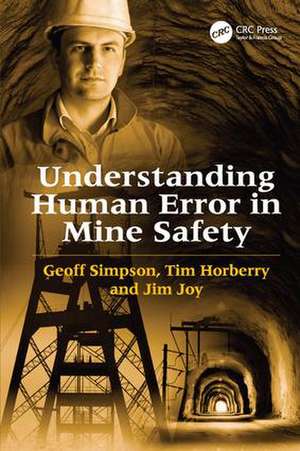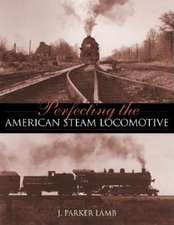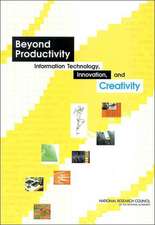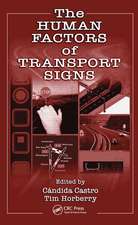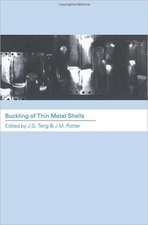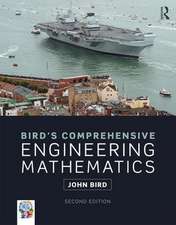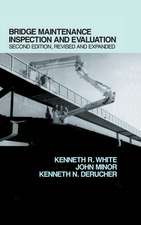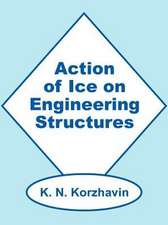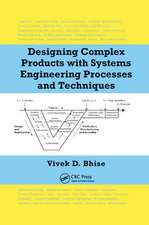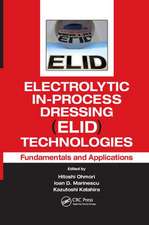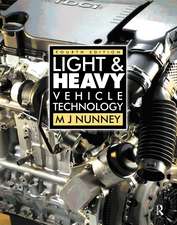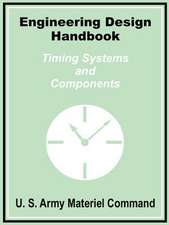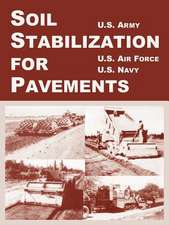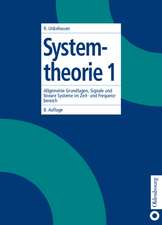Understanding Human Error in Mine Safety: Human Factors in Mining
Autor Geoff Simpson, Tim Horberryen Limba Engleză Hardback – 12 oct 2009
| Toate formatele și edițiile | Preț | Express |
|---|---|---|
| Paperback (1) | 427.16 lei 6-8 săpt. | |
| CRC Press – 31 mar 2017 | 427.16 lei 6-8 săpt. | |
| Hardback (1) | 1109.99 lei 6-8 săpt. | |
| CRC Press – 12 oct 2009 | 1109.99 lei 6-8 săpt. |
Preț: 1109.99 lei
Preț vechi: 1353.64 lei
-18% Nou
Puncte Express: 1665
Preț estimativ în valută:
212.39€ • 222.35$ • 175.74£
212.39€ • 222.35$ • 175.74£
Carte tipărită la comandă
Livrare economică 05-19 aprilie
Preluare comenzi: 021 569.72.76
Specificații
ISBN-13: 9780754678694
ISBN-10: 0754678695
Pagini: 174
Dimensiuni: 156 x 234 x 11 mm
Greutate: 0.48 kg
Ediția:1
Editura: CRC Press
Colecția CRC Press
Seria Human Factors in Mining
ISBN-10: 0754678695
Pagini: 174
Dimensiuni: 156 x 234 x 11 mm
Greutate: 0.48 kg
Ediția:1
Editura: CRC Press
Colecția CRC Press
Seria Human Factors in Mining
Cuprins
Contents: Preface; Introduction; The nature of human error; Predisposing factors: level 1 - the person-machine interface; Predisposing factors: level 2 - the workplace environment; Predisposing factors: level 3 - codes, rules and procedures; Predisposing factors: level 4 - training and competence; Predisposing factors: level 5 - supervision/first line management roles and responsibilities; Predisposing factors: level 6 - safety management system/organisation and safety culture; Managing human error potential; Conclusion; Glossary of mining terms; References; Index.
Notă biografică
Geoff Simpson has been involved in Health and Safety research and consultancy for more than 35 years, including more than 20 years in mining. During this time his roles have included Head of Ergonomics at the Institute of Occupational Medicine, Manager of Ergonomics and Safety Management at British Coal, Head of Safety Management at International Mining Consultants Ltd, and Lecturer at the University of Nottingham. Geoff has published more than 80 papers on human factors and has been a member of national and international committees including the European Coal and Steel Community committee of experts on ergonomics. Tim Horberry is Associate Professor of Human Factors at the Minerals Industry Safety and Health Centre (MISHC), University of Queensland, Australia. Before that he was head of human factors in the transportation division at the UK’s Transport Research Laboratory. Dr Horberry has published his work widely, including two books: ’the human factors of transport signs’ (2004) and ’human factors in the maritime domain’ (2008). Tim has undertaken many applied human factors research projects in Australia, the UK and Europe for organizations such as the European Union, Australian Coal Association Research Program and the UK Department for Transport. Jim Joy is Professor of Mining Safety and director of MISHC. Jim has written many papers and delivers industry seminars on Human factors in the Mining Industry, including a manual on workplace risk assessment called "WRAC". He has been extensively involved in underground and surface mining in the coal and metal mining industry for 15 years. Jim has facilitated risk assessments and major accident investigations, as well as aiding in development of risk management systems. He has extensive overseas experience as a leader in international mining OH&S and overall risk management. Jim has worked on major projects for companies or agencies in the U.S.A., Indonesia, China, South Africa, U.K., Canada and New Zealan
Recenzii
'Understanding Human Error in Mine Safety makes an excellent contribution to the growing efforts by mining industry professionals around the world to address the complex issues of human factors, human behaviour and leadership, in improving mine safety. It provides a accessible précis of current knowledge and experience in the field. I recommend it to line managers on mines and to all those who design equipment or engineer systems that are used in mining.' Alex du Plessis, University of the Witwatersrand, South Africa 'This book looks at human error specifically within the mining industry outlining the importance of considering error in accident causation, theories behind human error and means of prevention. What makes the book stand out is that it is full of real life examples taken from the authors' extensive experience in the subject area backing up each of the underlying causation issues identified. The result is a great practical introduction and guide to the subject that would benefit practitioners and students alike.' Patrick J Foster, Camborne School of Mines, University of Exeter, UK 'Throughout this book there are some excellent figures and in-depth analysis of previous disasters. It should certainly be of value to the authors' intended audience - and many more who will undoubtedly find much of it fascinating reading.' RoSPA Occupational Safety & Health Journal, April 2011
Descriere
The consideration of human factors issues is vital to the mining industry. As in other safety-critical domains, human performance problems constitute a significant threat to system safety, making the study of human factors an important field for improving safety in mining operations. The primary purpose of this book is to provide the reader with a much-needed overview of human factors within the mining industry, in particular to understand the role of human error in mine safety, explaining contemporary risk management and safety systems approaches. The approach taken is multidisciplinary and holistic, based on a model of the systems of work in the mining industry domain. The ingredients in this model include individual operators, groups/teams, technology/equipment, work organisation and the physical environment. Throughout the book, topics such as human error and safety management are covered through the use of real examples and case studies, allowing the reader to see the practical significance of the material presented while making the text rigorous, useful and enjoyable. Understanding Human Error in Mine Safety is written for professionals in the field, researchers and students of mining engineering, safety or human factors.
